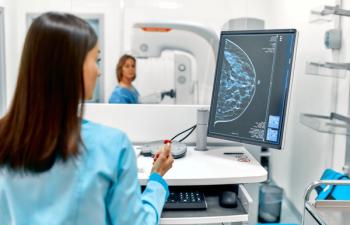
Potential Protein Biomarkers Discovered for ALS Diagnosis, Prognosis
Study identifies potential biomarkers that could provide a quicker path to diagnosis of amyotrophic lateral sclerosis.
Researchers have discovered potential biomarkers that could help speed diagnosis of amyotrophic lateral sclerosis (ALS) and more accurately determine disease prognosis, according to a new study.
In ALS, diagnosis is often delayed 1 to 2 years from symptom onset while other confounding disorders are ruled out and more phenotypes of the disease emerge. Because of this, patients may endure misdiagnoses, unnecessary costs, and disease progression that prevents early intervention.
The study, published in Scientific Reports, identified more than 1000 different proteins from samples of cerebrospinal fluid (CSF) and blood plasma from 33 patients with ALS and 30 healthy individuals. Using advanced machine learning techniques, the researchers developed models that consisted of multiple proteins to determine combinations that improved their diagnostic and prognostic value. Next, the researchers developed a targeted proteomic assay to investigate the specificity of 2 protein markers in a separate set of CSF samples from individuals with ALS and other neurological diseases.
According to the study, proteins chitinase-3 like1 and alpha-1-antichymotrypsin, which are both associated with immune system activation in the brain, demonstrated promising use as biomarkers. The researchers noted that the assays could be used in diseases such as Parkinson and Alzheimer, considering immune system activation is known to play a role in these conditions as well.
Overall, the findings confirm that both proteins are significantly elevated in the CSF of patients with ALS compared with healthy individuals. However, no significant differences in either protein were found when comparing ALS to other neurological diseases, according to the study.
Additionally, the researchers indicated that the markers could serve as objective measures of disease prognosis in ALS and potentially provide a more accurate snapshot of disease progression, as opposed to the objective tools currently used to monitor prognosis.
“These results emphasize the power of a multi protein panel for clinical value in ALS,” the researchers wrote.
Although the study showed that proteins found in CSF were more useful than those in blood plasma, the researchers noted that there is still the potential for an assay in blood plasma, which could be less invasive.
“Our goal is to create a panel of protein targets that could give doctors a quicker path to diagnosis for ALS patients, as well as an objective way to measure disease progression, or to test the efficacy of new drugs,” lead author Michael Bereman, assistant professor in biological sciences at North Carolina State University and leader of the proteomics core at NC State’s Center for Human Health and Environment, said in a statement.
He concluded that the next steps would be to identify changes in these proteins and their signaling pathways over time in fluids that have been longitudinally collected from patients with ALS.
References
Bereman MS, Beri J, Enders JR, et al. Machine learning reveals protein signatures in CSF and plasma fluids of clinical value for ALS. Scientific Reports. 2018.
Researchers Identify Promising Proteins for Diagnostic, Prognostic Use in ALS [news release]. NC State University’s website.
Newsletter
Stay informed on drug updates, treatment guidelines, and pharmacy practice trends—subscribe to Pharmacy Times for weekly clinical insights.








































